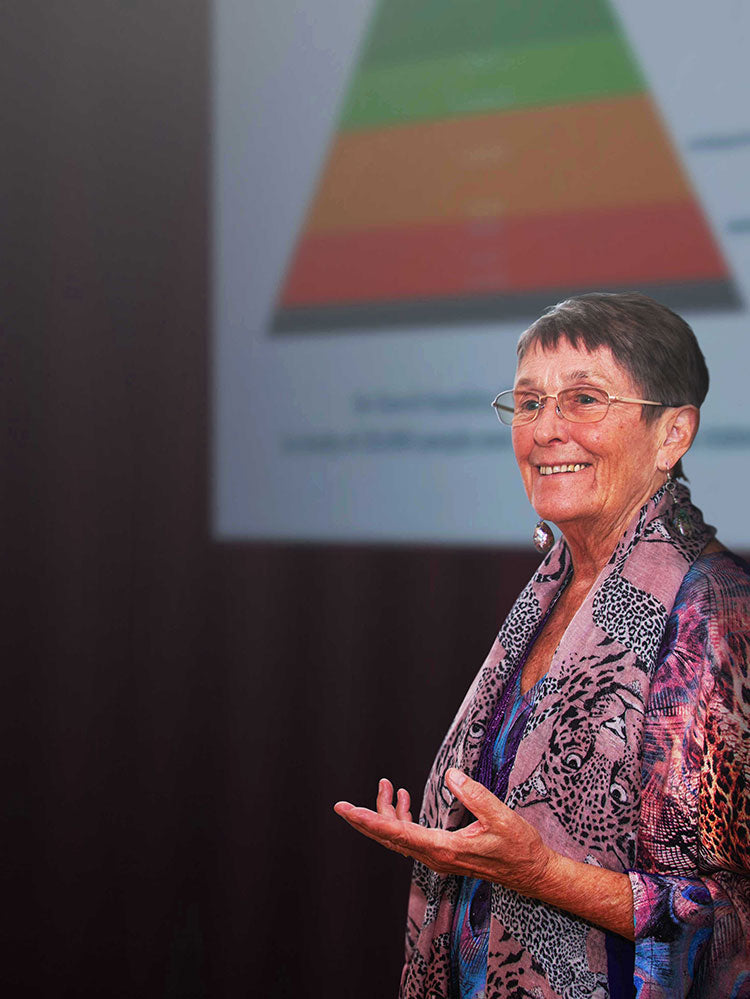As of 2024, we have merged the previous Practitioner Fundamentals and Practitioner Certification courses into a single, fully comprehensive program known as Module 2.
Live and online, this transformative 18-week journey offers you an opportunity to apply your knowledge and work with clients in real-life scenarios.
This next step teaches the fundamental elements for professional certification as a QEC Practitioner. This includes applying the Gestalt Therapeutic Principles of a “Healing Relationship” - to hold a sacred space for a client that will, over time allow them to deepen their work with you.
We will expand our understanding of how QEC works by delving into the depths of neuroscience, the physiology of stress, and how to change our energy field to manifest the life we want moving forwards.
Having peeled the protective outer layers of the onion, you are ready to unpack what lies beneath. You’ll learn how to work with the buried wounds of trauma and the hidden shames of addiction that carried by many of our clients. You’ll put everything into action with a 3-month case study, working with a client.
This final module teaches you how to recognise and manage a wide range of traumas. From the time in the womb, through developmental childhood trauma to those painful experiences we face as adults. All traumas, whether medical, surgical, accidental or developmental (from childhood), impact us for life, leaving scars that can jeopardise inner happiness and peace.
Trauma, being neurologically 'hard-wired' in the brain, is difficult to change with talk therapy. This is not the case with QEC where we use the power of the subconscious mind to elicit healing. In addition, Dr Salmon’s particular interest and years of her own research work in working with addictions, has led to successful development and practical application of her QEC Addiction Formula.
With the teaching and support of Dr Salmon and her team of skilled supervisors, you’ll graduate from this course as a practitioner, confident, proficient and ready to begin seeing your own clients.
NEXT COURSE BEGINS:
20th July 2026
Live Lectures and live demos with Dr Salmon
NEW, small group practicums with your supervisor and Dr Salmon in attendance
Weekly peer partnership practicums, using QEC with your peer partner
Live small group supervision on your case study with your supervisor and Dr Salmon
Certify as a professional QEC Practitioner, listed on our website
Access post-graduate advanced courses and masterclasses
Live lectures from Dr Salmon

Live, weekly lectures
+-
Lecture 3.1: Seeing new clients
In this exciting topic we’ll cover the necessary preparation before we meet new clients, including how to use and evaluate the QEC Medical Indemnity, how to take a medical history, history of childhood development and history of trauma and addictions. We’ll teach you how to use QEC to stabilise the Autonomic Nervous System and we’ll explain the “bell curve” of trauma. Finally, we’ll set goals and intentions for the work ahead.
+-
Lecture 3.2: Trauma
This lecture starts with the question “What is trauma?” Dr Salmon will explain the QEC Trauma Formula, a simple yet powerful approach to working with trauma. You’ll understand how the Autonomic Nervous System is impacted by different traumas at different ages and how ‘coming down the bell curve' finds optimal balance.
You’ll learn how QEC can be used to change hard-wired trauma in procedural memory in the brain.
Moving forwards, we’ll discuss support and treatment plans for your clients.
+-
Lecture 3.3: Working with special challenges in traumatised clients
We will look at how to apply our Gestalt listening skills and the QEC technique for change in the following situations:
How to work with ‘freeze’, a state of emotional disconnection with its roots in childhood. For context, Dr Salmon will teach a brief history of ‘freeze’ back to times of hysteria and being institutionalised.
You’ll learn how to work with clients experiencing ‘overwhelm’ and emotional ‘flooding’, when being present seems impossible.
Dr Salmon will teach you how to work with clients whose trauma stems specifically from a break in integrity, such as violent physical abuse, sexual abuse, narcissistic parenting and toxic shame.
+-
Lecture 3.4: Managing addiction
We will start by asking “what are addictions and can we heal from them?” The cause of addictions is now clearly understood from the work of Gabor Mate and others. We’ll cover this work as an important foundation for our QEC approach. Dr Salmon will teach you how and when to use the QEC Addiction Formula, including describing the special challenges that often arise.
You’ll understand how QEC addiction work differs to other types of trauma work in that we take a long-term approach to heal the more resistant aspects of addictive, habitual behaviour patterns.
+-
Lecture 3.5: How to avoid being a 'fixer'
In this lecture you will gain a crucial understanding of how to help others without ‘rescuing’ them; We will ask questions such as: "Do I need to relieve the pain in others in order to relieve pain in myself? Does witnessing a suffering client trigger suffering in me? Am I clear with my boundaries and am I able to gauge when I’ve done enough? Have I ever suffered from burnout?
The cycle of reaching out to relieve suffering can be hard to stop because we get triggered unconsciously into our own past trauma. Our reaction to it, in the moment, is almost unstoppable.. It’s a sense of “I have to do something!” The work of supporting trauma requires that we attend to our own ability to hold an inner resilient and calm space for others, without being triggered.
+-
Lecture 3.6: Supporting our clients to become their best self
This lecture explores how to help clients to unlock their potential, moving from survival to thriving. QEC work, by releasing past baggage, raises consciousness. This upwards trajectory allows us to create the life we truly want.
We need to understand how to ‘clear’ everything that’s holding us back from being our best self. We’ll review key QEC principles such as following excitement as a personal guide, releasing attachment to old dysfunctional behaviour patterns and stepping courageously into a higher energy field that allows us to create a new reality.
+-
Lecture 3.7: Moving forwards - your journey as a QEC Practitioner
In this final lecture, Dr Salmon will cover all that lies ahead for you after certification. As part of our global QEC community, you’ll be able to attend our monthly Connect and Grow meetings and have access to our advanced QEC Trainings - also presented live with Dr Salmon. Plus, you’ll be able to attend our ongoing supervision groups to deepen your client work.
New: Small group practicums

NEW Live small group practicums
The purpose here is to practice working with both the Trauma Formula and the Addiction Formula, under supervision, exploring the the challenges and resistances we encounter in this deep work.
Small group case study supervision

Case study supervision group
You will be required to record the sessions with your client and bring this with you to supervision, so that we may support you with any challenges and celebrate your successes with you!
Peer partnership practicums
Peer partner practicums
For many trainees, the peer work that continues throughout Module 3 will become a supportive partnership and friendship for years after the training is over.
Introduction to Gestalt Part 1
The dialogic healing relationship
+-
Building trust and safety
This empathic relationship builds a foundation of trust and safety that allows clients, over time, to open up to their deeper concerns.
+-
Awareness raising
You’ll learn how to hold up a mirror to your client, allowing them to become aware of who they are – so that they are able to make changes if they wish to.
Introduction to Gestalt Part 2
Phenomenology
+-
The 'rule of description'
As phenomenology discovers how clients have made meaning in their lives, you will learn how to use the ‘rule of description’ to only describe what you see without interpretation or making assumptions.
+-
Stepping stones to change
Dr Salmon will unpack for you why phenomenology is such an important aspect of the Gestalt interaction – and how, when applied – it lays stepping stones to begin the work of change with QEC.
The QEC method with others
Peeling the onion
+-
How to 'meet clients where they are'
You'll develop the skill of tuning in to the outside of your client – meeting them where they are, without intrusion or pressure. This means to acknowledge that clients are willing to be seen on the surface but aren’t always comfortable to reveal what lies underneath.
+-
How to work by 'peeling the onion'
You will develop the skill of working layer by layer. The QEC approach is natural and organic. As each next later presents itself, the previous layer is removed in a non-threatening way.
By “peeling the onion” in this way, we build trust and work though what the client is happy to work with, until such times as the deeper, perhaps more painful or shameful material can be seen and worked with
Peeling the onion is how all QEC Practitioners begin working and will do this until the client is ready for the deeper work
The science
The science behind QEC
+-
Neuroplasticity of the brain
We'll explore the latest understanding of how the brain works and how it is possible to change old ‘wiring’. You’ll understand how it is possible to create a new reality through neuroplasticity.
+-
How we can heal from the past to change the present
You will see how it is possible to change even ‘hard-wired’ beliefs dating back decades, especially those coming from early childhood and from trauma.
+-
The science, applied through the lens of QEC
You will learn how to apply the principles learned in this section to set the right conditions that allow for change to happen with your clients.
Stress, health fear and phobias
Essentials of Epigenetics
+-
The essentials of Epigenetics
We will cover essential information on the topic of Epigenetics – the mechanism by which we activate genes according to our state of mind and our environmental stimulus.
+-
The influence of our mind on our health
We will learn how our beliefs systems control our health and how we can choose and initiate change in our lives.
+-
The autonomic nervous system
Fear and phobias are common and can create a dysregulated nervous system, untimely leading to ill health. We will learn to moderate and change what we fear and even what we imagine we fear (our phobias). Crucially, you’ll learn how to work with clients to return their nervous system back to homeostasis
Unlock your potential
Manifestation
+-
Analysing blocks
We will examine the reasons why we aren’t experiencing a life we would prefer, including how we might be blocking ourselves from having the best outcomes
+-
Levels of consciousness
You will learn about levels of consciousness and the work of Dr David Hawkins. Applying these principles to your QEC work allows you to join the path of raising consciousness.
+-
Aligning with excitement
We will also learn how to follow the “stepping stones” of our personal excitement, aligning with our ‘truest self’, in order to reach personal fulfilment and extraordinary outcomes
+-
The mechanism of manifestation
We will learn the mechanism of manifestation and the power of focused intention. You’ll see how it is possible to attract to us experiences we want such as new career, home or relationship.

Package discount
If you're considering becoming a certified QEC practitioner and securing your spot in the full training, we're pleased to let you know that there's a 10% discount available, which will save you £500. We also offer flexible payment plans for your convenience, as detailed below.







